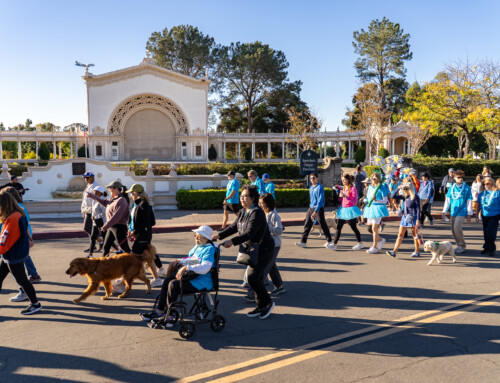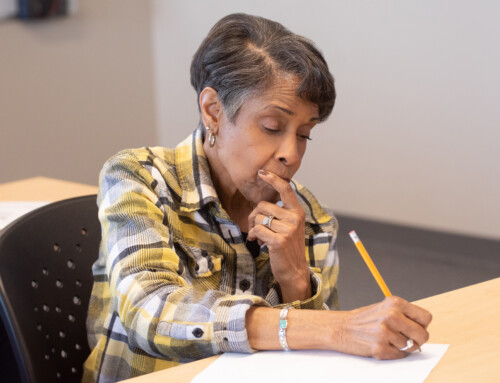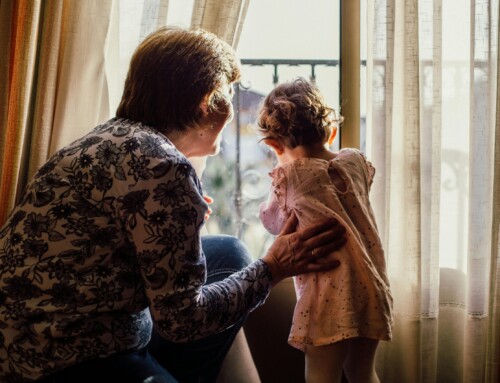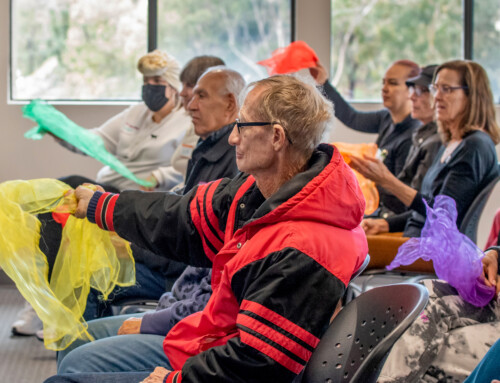
Clinical Care Coach Corner: Written by Alisa Isumi, MPH
In my previous role, I was the Director of Resident Engagement at a large memory care community. In that experience I learned a lot about ways to engage people with dementia in all stages of the disease. What’s important to know is that this process does not have to be difficult, or complex. The focus is on having fun and doing something that creates a better quality of life.
The word “activities” can seem intimidating to care partners at home. Care partners already have 24/7 responsibilities and adding activities to the agenda can feel overwhelming. Residential communities often have an entire department focused on activities and a room full of supplies. You are not expected to turn your home into a fun center, but providing opportunities for your person to engage in meaningful activities at home doesn’t need to be elaborate or require a slew of products. In fact, many care partners are already creating meaningful activities but don’t consider it an “activity” or label it as “engagement.”
Give Yourself Grace
As humans, we all want to contribute to something valuable. It is important for people living with dementia to have opportunities to participate in meaningful activities even if they are not able to initiate these activities on their own. I encourage you to think outside the box about the power of using our five senses: seeing, tasting, hearing, feeling, and smelling. Just because someone has dementia doesn’t mean their senses are separate from them. Our senses actually help with reminiscence, enjoyment and engagement. Oftentimes, people with dementia may feel like this disease has taken much away from them. Incorporating favorable and meaningful aspects of one’s past can help decrease symptoms of depression, positively impact quality of life, and help the person feel a sense of value or purpose.
In the early stages, there may be an interest in cognitive stimulation programs or “brain games.” These activities are available in a web-based format or in workbooks at a variety of price points and provide the person with dementia with mentally engaging exercises. However, as mentioned, cognitive stimulation could also include doing something new each day – visiting a new local coffee shop, taking a different route to the library, making a new recipe for dinner. Staying socially and physically active is also important. Keeping up with exercise routines and planning regular outings with friends and family should be a priority. Just remember that as one’s brain is changing, overstimulation and exhaustion are heightened, so take rests between activities.
As dementia progresses, the purpose or goal of the activity shifts from the outcome to the experience. For example, if baking cookies is a favorite activity for a person in the middle stage, they may no longer be actively mixing ingredients, but instead become the kitchen consultant and official taste tester.
When considering an activity, it should be something the person is interested in, enjoys doing, and that can be completed successfully, either alone or with help. If the activity causes frustration, make modifications or try something else. Don’t be afraid to try new things! You may discover new activities to enjoy together. It is a bonus when care partners and family members get the chance to have fun and create memories alongside the person with dementia.
Things to consider when planning activities:
- Prior to diagnosis, what did the person enjoy doing in their career or in their free time and how can you incorporate aspects of this activity into their lives now?
- Are there activities they can do with others?
- How can family, friends, and neighbors be involved?
Here are some activity ideas to try at home:
- Going for a walk or spending time outside enjoying nature.
- Listen to their favorite music. Music can be used to stimulate memories and emotions.
- Watch funny videos. Laughter is always good!
- Take a scenic drive.
- Spend time with pets.
- Look through photo albums and reminisce.
- Use the person’s favorite scented lotion and offer them a hand massage.
- Bake a favorite meal and allow the good smelling aroma to fill the kitchen.
Activities allow people with dementia to make emotional connections even when they may not be able to find the words to express their feelings. Smiles say a lot so if your person is smiling – keep doing it!
Alzheimer’s San Diego is here to support you. We offer free social activities at our office every Friday and plan outings regularly around the county. We also have iCST kits (Individual Cognitive Stimulation Therapy) that provide supplies to care partners to use to engage their person with dementia at home. These kits are available at no cost and can be picked up at our office (supply is limited). For more information on activity ideas for individuals with dementia, speak to one of our Clinical Care Coaches by calling us at 858.492.4400.
Our “Clinical Care Coach Corner” series is where our dementia experts weigh in on topics they feel are necessary to discuss and provide insight that can help people affected by dementia.





